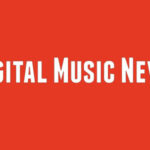Exploring the World of Music: How to Find the Best Music for Your Needs.
Music: The Key to Unlocking Your Creative Potential
Music is a form of art that uses sound organized in time. Music is also a form of entertainment that puts sounds together in a way that people like, find interesting or dance to. Most music includes people singing with their voices or playing musical instruments, such as the piano, guitar, drums or bass.
Music is a vast and diverse field that spans numerous genres, instruments, cultures, and technologies. Here are some key aspects related to music that might interest you:
Music Genres
1.Classical: Encompasses a wide range of styles from different historical periods (Baroque, Classical, Romantic, etc.)
Notable composers: Bach, Beethoven, Mozart, Chopin
2.Pop: Popular music that appeals to a broad audience, Known for catchy melodies and relatable lyrics
Notable artists: Michael Jackson, Madonna, Taylor Swift, Beyoncé
3.Rock: Originated in the 1950s and includes various subgenres like punk, metal, and alternative
Notable bands: The Beatles, Led Zeppelin, Nirvana, Queen
4.Jazz: Characterized by improvisation, swing, and blue notes, Originated in African American communities in the early 20th century
Notable musicians: Louis Armstrong, Miles Davis, John Coltrane
5.Hip-Hop/Rap: Originated in the 1970s in African American communities, Known for rhythmic vocal delivery and DJing
Notable artists: Tupac Shakur, The Notorious B.I.G., Jay-Z, Kendrick Lamar
6.Electronic/Dance: Uses electronic instruments and technology, Includes subgenres like house, techno, trance, and EDM
Notable artists: Daft Punk, Calvin Harris, Avicii, Deadmau5
7.Country: Originated in the southern United States, Known for storytelling and acoustic instruments
Notable artists: Johnny Cash, Dolly Parton, Garth Brooks, Carrie Underwood
8.R&B/Soul: Combines rhythm and blues with elements of gospel and jazz
Notable artists: Aretha Franklin, Stevie Wonder, Beyoncé, Alicia Keys
Learning Music
1.Instruments: Common instruments: piano, guitar, drums, violin, saxophone, flute
Online resources for learning: YouTube tutorials, online courses, apps like Yousician
2.Music Theory: Understanding the structure and elements of music (scales, chords, rhythm, harmony)
Resources: online courses, books, apps like Teoria
3.Singing/Vocals: Techniques for improving vocal skills: breathing exercises, pitch control, diction
Resources: vocal coaches, online lessons, apps like Smule
4.Music Production: Using software to create and record music (DAWs like Ableton Live, FL Studio, Logic Pro)
Learning about mixing, mastering, and sound design
Resources: online courses (Coursera, Udemy), YouTube tutorials
Music Technology
1.Streaming Services: Platforms like Spotify, Apple Music, Amazon Music, Tidal
Offer vast libraries of music, personalized playlists, and recommendations
- Music Apps:
- Apps for listening: Spotify, Pandora, SoundCloud
- Apps for learning: Yousician, Simply Piano, Ultimate Guitar
- Apps for creation: GarageBand, FL Studio Mobile, Auxy
- Music Hardware:
- Instruments: keyboards, guitars, electronic drum kits
- Recording equipment: microphones, audio interfaces, MIDI controllers
- Listening devices: headphones, speakers
Music History and Culture
- Historical Periods: Renaissance, Baroque, Classical, Romantic, Modern
Influence of social, political, and cultural changes on music
- Cultural Impact: Music’s role in shaping and reflecting societal values and movements
Examples: protest songs, anthems, cultural rituals
- Global Music: Exploring music from different cultures: African drumming, Indian classical, Latin salsa
Understanding the diversity and richness of world music traditions
Music and Well-being
- Therapeutic Benefits:
Music therapy for mental health and emotional well-being
Use of music in relaxation and stress relief
- Cognitive Benefits:
Enhancing memory, focus, and learning through music
Impact on brain development, especially in children
- Social Benefits:
Building connections and community through shared musical experiences
Role of music in social events and celebrations
Music Industry
- Careers in Music:
Performance, composition, production, sound engineering, music education
Roles in the music business: management, marketing, A&R, licensing
- Music Distribution:
How artists release music: digital platforms, physical media, live performances
Role of record labels and independent distribution
- Copyright and Licensing:
Understanding intellectual property rights in music
Importance of royalties, sync licensing, and performance rights
Do you have a specific area within music that you would like to explore further?








